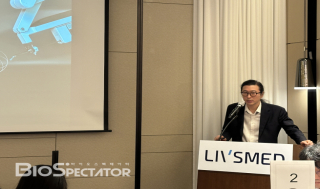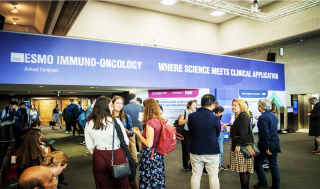기업
Accumulated Sales of Celltrion’s Remsima in the Domestic Market Exceed 50Billion Won
바이오스펙테이터 Seunghyun Chon 기자
Since its launch in Korea at the end of 2012, Celltrion’s biosimilar Remsima has hit a 50.0 billion barrier in accumulated sales. Although the performance is less than impressive, Remsima has continued to display a stable growth trend in the tumor necrosis factor-alpha (TNF-alpha) inhibitor market, even amid fierce competition with the original products of multinational firms, such as Enbrel and Simponi.
According to the global healthcare market analytic firm IMS Health, the domestic market volume of TNF-alpha inhibitors for the third quarter of this year grew 12.9 % to 42.0 billion won from a year ago. TNF-alpha inhibitors treat autoimmune diseases by blocking TNF, an inflammatory protein overexpressed in a wide range of progressive inflammatory disorders.
To date, the domestic TNF-alpha inhibitor market has been expanding at a rapid pace, showing a sharp growth of 75.0 %, compared with 24.0 billion won from the third quarter of 2012.
During the July–September period, the combined market volume jumped 11.2 % on-year to 121.6 billion won. In situations where the products of multinational firms still dominate the domestic market, local brands have strenuously expanded their market share.
Based on the sales of individual products, AbbVie’s Humira continues to be a leader in the domestic TNF-alpha inhibitor market, and its third-quarter sales came to 17.9 billion won, up 20.1 % from a year earlier.
During the January–September period, Humira is ahead of the next competitor Remicade by 8.0 billion won in sales (52.0 billion won), with market share of 42.6 %.
With respect to product performance (the range of indications), Humira has outperformed Remicade and Enbrel with 14 indications, followed by Remicade (8 indications), and Enbrel (5 indications).
Janssen’s Remicade maintained No. 2 rank, with average quarter sales of about 9.0 billion won (1st quarter sales: 9.3 billion won, 2nd quarter sales: 9.2 billion won, and 3rd quarter sales: 9.8 billion won).
Fierce completion is under way between Janssen’s Simponi, Pfizer’s Embrel, and Remsima for third place. The third-quarter sales of individual products are in the range of 4.0–5.0 billion won.
In the January–September period, Simponi’s sales soared 27.3 % on-year to 14.4 billion won. In contrast, Enbrel’s sales dipped 8.0 % on-year to 13.4 billion won.
Enbrel’s sales nosedived, due to the emergence of a biosimilar from the end of 2015, but its sales have remained sluggish. Enbrel’s sales for the January–September period declined 43.0 %, when compared to 23.5 billion won during the same period of 2015. Taking account of the fact that the health insurance price of Enbrel was slashed up to 30 % due to the launching of Samsung Bioepis’s biosimilar Brenzys in December 2015, Enbrel’s sales loss is greater than the reduced health insurance price.
On the other hand, sales of Remsima rose 13.1 % on-year to 12.8 billion won for the January–September period. Remsima is the first Remicade-referencing biosimilar containing infliximab.
Remsima has witnessed stable performance due to continued sales, despite its slowing upturn compared to the initial stage. Since its launch in the domestic market at the end of 2012, the accumulated sales of Remsima have recorded 52.7 billion won.
Remsima’s third-quarter market share was 9.7 % in the domestic TNF-alpha market, while its market share rose to 30.1 % in the infliximab market (including Remicade). This figure is lower than expected, as Remsima has cemented its position in Europe, taking its market share up to 46 % in the second quarter (IMS Health Data); but when Korea’s health insurance system is considered, Remsima fared well.
The insurance price of Remsima is 363,530 won, and the pricing gap between Remsima and Remicade is only 5 %. Under the current health insurance system in Korea, the price of an original drug should automatically drop by 70 % following its biosimilar’s launch (a maximum of 80 % since October 2016). Thus, any biosimilar has no better pricing competitiveness, unless the price of the original drug is drastically reduced.
Samsung Bioepis’s biosimilars (Brenzys and Renflexis) have posted dismal sales until this date. The accumulated sales of Brenzys, the Enbrel-referencing biosimilar, failed to reach 1.0 billion won since its launch in December 2015. During the July–September period, sales of Brenzys posted around 600 million won. To overcome the sluggish sales of Brenzys and Renflexis, Samsung Bioepis has recently changed its local partner from MSD to Yuhan Corporation.














![[BioS 레터]무균주사제 공급망 변화와 CDMO 대응](https://img.etoday.co.kr/crop/77/77/2262816.jpg)



